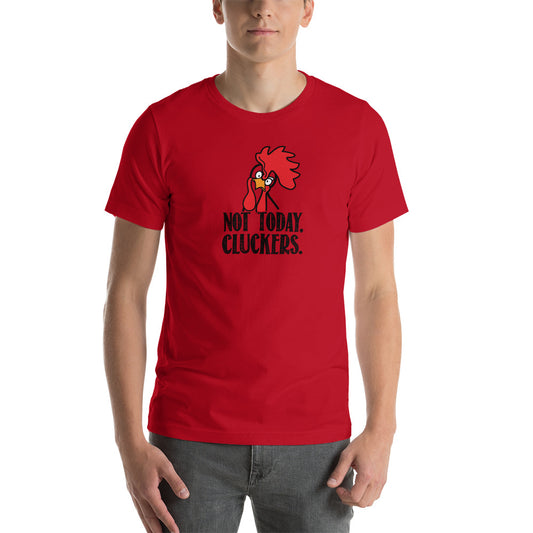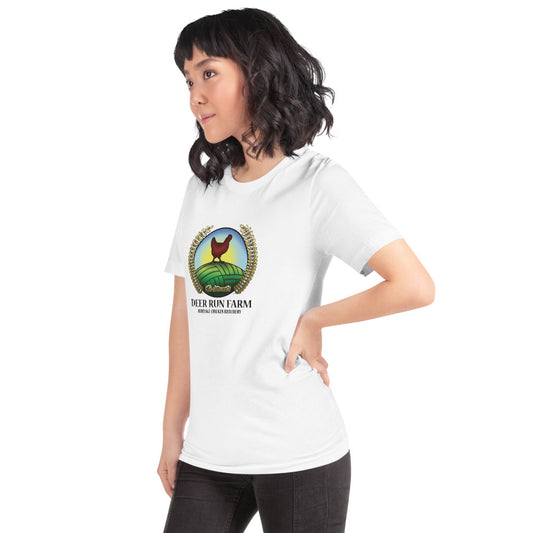The Cleanest Hatchery in the United States
Deer Run Farm is proud to be the ONLY Heritage Chicken Hatchery in the United States to test regularly for Mycoplasma Gallisepticum, Mycoplasma Synoviae, Pullorum Typhoid and Avian Influenza making them the cleanest hatchery in the United States. Don't believe us? See for yourself: NPIP's State Participants.
MD NPIP# 51-578
Most other hatcheries claim to be disease-free but only test for what's required by the NPIP in their state, typically leaving out tests for infectious diseases like Mycoplasma Gallisepticum and Mycoplasma Synoviae. The tests can be more expensive and may require a lot of additional work in having to catch the birds for testing which is another reason why other hatcheries don't bother with testing.
Why is testing for Mycoplasma so important that Deer Run Farm makes it a necessary part of their regular testing? Mycoplasma is a very small, slow-growing bacterium that, like humans, chickens can become sick from. Both Mycoplasma Gallisepticum (MG) and Mycoplasma Synoviae (MS) can make birds sick and sometimes result in death. Once a chicken is infected with either type of Mycoplasma they become carriers for life even after treatment. Mycoplasma can spread from bird to bird easily, but symptoms can take several weeks before their even noticeable. Other hatcheries may not know their flock is infected and inadvertently spread the disease through both the sale of eggs and chickens and by human contact with other birds if they've not followed proper biosecurity measures.
Symptoms of Mycoplasma include runny nose, coughing or unusual breathing sounds, swollen or puffy eyelids and face. MS may also cause issues with walking or standing, ruffled feathers, swollen joints and blisters. Each bird is affected differently, some more than others. Weight loss, eating less and laying less can also be signs of Mycoplasma.
MG and MS do not effect humans, but humans can carry and spread the bacteria. Mycoplasma can live in a person's nose for up to one day. It can live on straw, rubber or cotton for up to two days and in hair for up to three days. This is why it's so very important for Deer Run Farm to cautiously follow specific biosecurity measures when customer's are picking up birds off the farm.
For more information on Mycoplasma Gallisepticum and Mycoplasma Synoviae visit Merck Manual Vetrinary Manual.
Deer Run Farm tests each flock on a quarterly basis for AI, MG and MS. The PT test is done once a year in preparation for the big Spring hatch.
What is Avian Influenza? Avian Influenza (AI) is a naturally occuring virus among wild aquatic birds and can infect domestic poultry and other animal species. Waterfowl can be infected with AI in their intestines and respiratory tract but usually don't get sick. AI is very contagious among birds and some can sicken and even kill certain domesticated bird species including chickens, ducks and turkeys. There are two common types of this virus: low pathogenic and high pathogenic. Low pathogenic types may cause mild infections that cause ruffled feathers and a drop in egg production. This type can also go undetected. High pathogenic viruses cause severe disease with high mortality (90%-100%) affecting multiple internal organs within 48 hours. Both types can spread rapidly through poultry flocks. Infected flocks usually have to depopulate and nearby flocks are heavily monitored and depopulated if there are signs of the virus. Although not hugely common, AI can be transmitted to humans and is one reason the disease is not taken lightly. For more information on Avian Influenza click here.
What is Pullorum Typhoid? Fowl Typhoid and Pullorum (PT) are septicaemic diseases primarily of chickens and turkeys caused by a gram negative bacteria, Salmonella Gallinarum and S. Pullorum. Most commonly affecting young birds about 4 weeks old. Affected birds huddle near a heat source, appear weak, have diarrhea, less of an appetite, increased thirst and have a pale appearance of the comb and wattles. While most birds don't survive a PT outbreak, those that do become carriers for life. The most common form of transmission is through the egg, but can also occur by direct or indirect contact with infected birds. Proper biosecurity measures should be followed to contain the disease at it can be transmitted on shoes and clothing. For more information on Pullorum Typhoid click here.
Chicken Apparel
-
Short-Sleeve Unisex Not Today Cluckers T-Shirt
Regular price From $21.50Regular priceUnit price per -
Short-Sleeve Unisex Deer Run Farm Logo T-Shirt
Regular price From $18.00Regular priceUnit price per -
Unisex Deer Run Farm Hoodie
Regular price From $29.00Regular priceUnit price per





